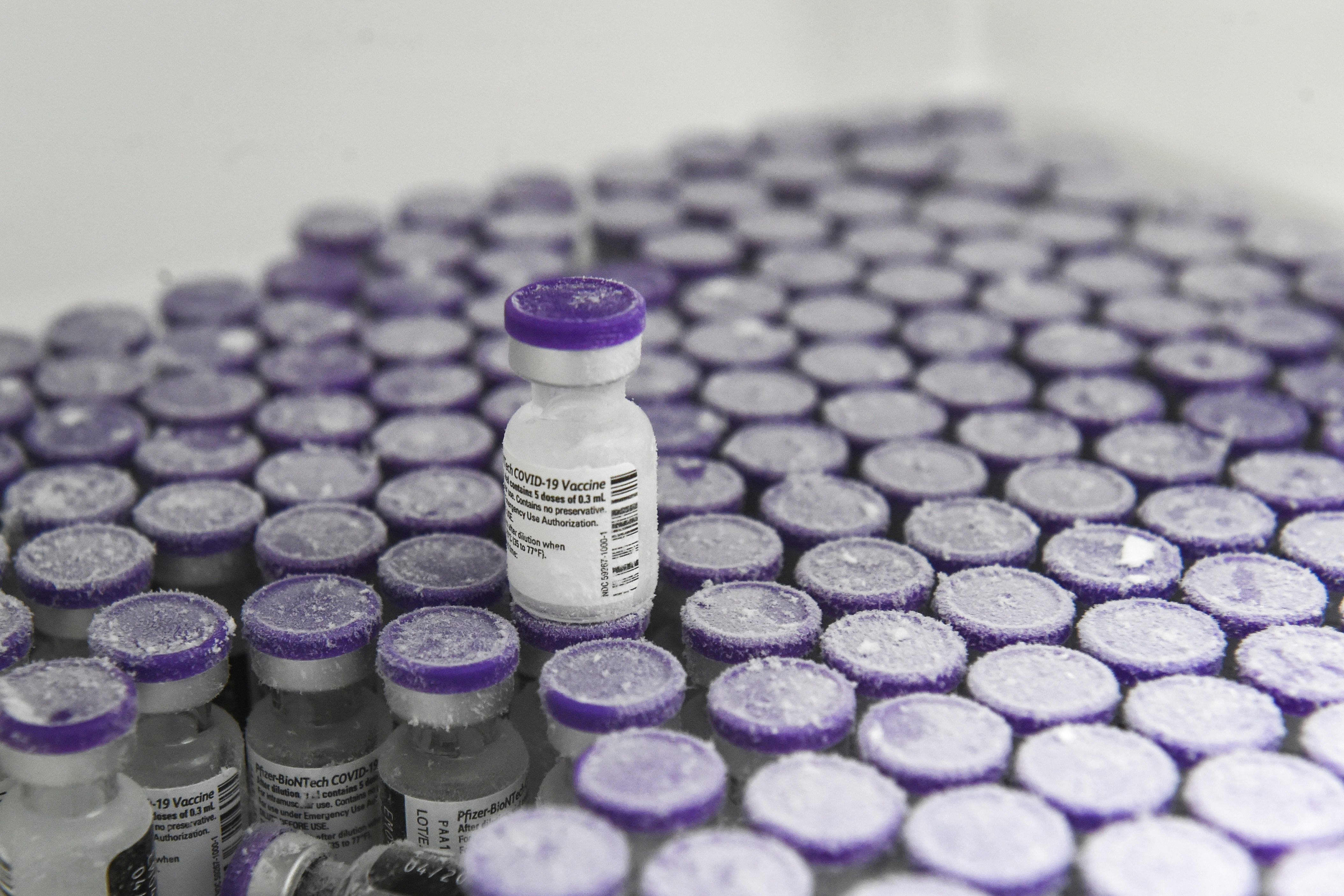Pfizer board member Dr. Scott Gottlieb told CNBC on Thursday that the company is researching two distinct methods to try providing vaccine protection against new coronavirus variants.
In an interview on “Squawk Box,” Gottlieb said the first approach is focused on whether a booster shot using the current formulation of the two-dose vaccine would provide additional defense. Pfizer and its German partner BioNTech announced a trial examining just that earlier Thursday.
“There’s reason to believe that you will get additional protection just from a booster of the existing vaccine against those new variants,” said Gottlieb, a former Food and Drug Administration commissioner in the Trump administration.
The second endeavor involves modifying the existing vaccine in a way that could provide stronger immunity against virus mutations, Gottlieb explained. The companies said in a release Thursday they’re in discussions with regulators about launching this research study.
While new coronavirus variants are concerning public-health officials, especially the more contagious strain first found in South Africa, Gottlieb said any tweaks to the vaccine formulation would hope to provide broad protection.
“What you want to do is not necessarily develop a vaccine that is particular against [B.1.351], the change that we saw in South Africa,” said Gottlieb, who led the FDA from 2017 to 2019. “What you want to do is develop a protein sequence that is sort of a consensus sequence and bakes in enough of the changes that we’ve seen across the world that you have a vaccine that is protective no matter what the virus manages to do against itself.”
The virus variant discovered in South Africa is generally thought to present a bigger challenge to existing vaccines than other new strains, such as the one originally discovered in the U.K.
For example, Johnson & Johnson reported its vaccine was 72% effective at preventing symptomatic Covid in the U.S. and 57% in South Africa, where the B.1.351 strain is dominant. However, the vaccine did provide 85% protection against severe Covid across the entire trial, part of which was also conducted in regions of Latin America where different variants are present.
The U.S. FDA is expected to authorize J&J’s vaccine for emergency use soon after the agency’s vaccine advisory committee meeting set for Friday.
Vaccines from both Pfizer-BioNTech and Moderna — which already have emergency use authorization in the U.S. — went through large phase-three trials before the new variants were discovered. However, Pfizer and BioNTech conducted a study examining the variant found in South Africa, which suggested some reduction in antibody production even though the vaccine still neutralized the virus.
Additionally, Moderna has said its two-dose vaccine appears to generate a weaker immune response against the variant from South Africa, while adding that the antibody response remains at levels that are believed to provide protection.
Moderna announced Wednesday that it has shipped a tweaked version of its vaccine to the National Institutes of Health to begin various studies around variant protection. Similar to Pfizer, the company said it also will test a lower-dosage booster shot of its current two-dose formulation.
Limited available doses has been a barrier to delivering Covid shots to more people once regulatory clearance was given. In the U.S., in particular, that situation has improved as companies ramp up production, and Gottlieb noted the possible approval of J&J’s single-dose vaccine will be helpful in expanding access, too.
If a booster shot ends up being needed to provide better protection against variants, Gottlieb expressed confidence about the potential dosage availability. “I don’t think we’ll have to ration supply if we want to give a third booster to people come the fall,” he said.
“The challenge is going to be thinking about the new variant vaccine and whether or not — and when — you’d switch over manufacturing to that vaccine, and how much you’d produce,” Gottlieb said. “That’s going to be a decision you have to make in advance of those new variant vaccines probably being authorized. You may not want to switch over all your manufacturing, but some of it.” He added, “Probably, sometime in the summer you’re going to have to make that decision.”
Disclosure: Scott Gottlieb is a CNBC contributor and is a member of the boards of Pfizer, genetic testing start-up Tempus, health-care tech company Aetion and biotech company Illumina. He also serves as co-chair of Norwegian Cruise Line Holdings‘ and Royal Caribbean’s “Healthy Sail Panel.”
